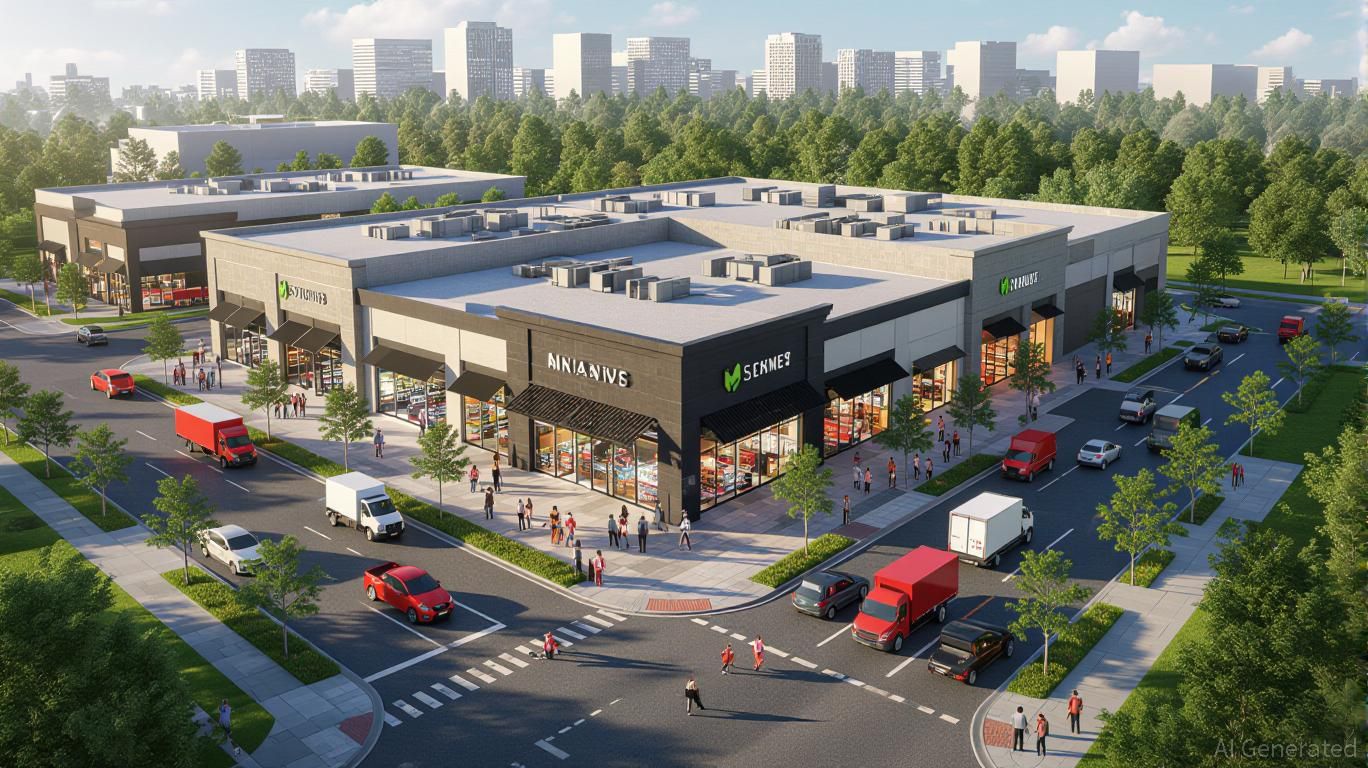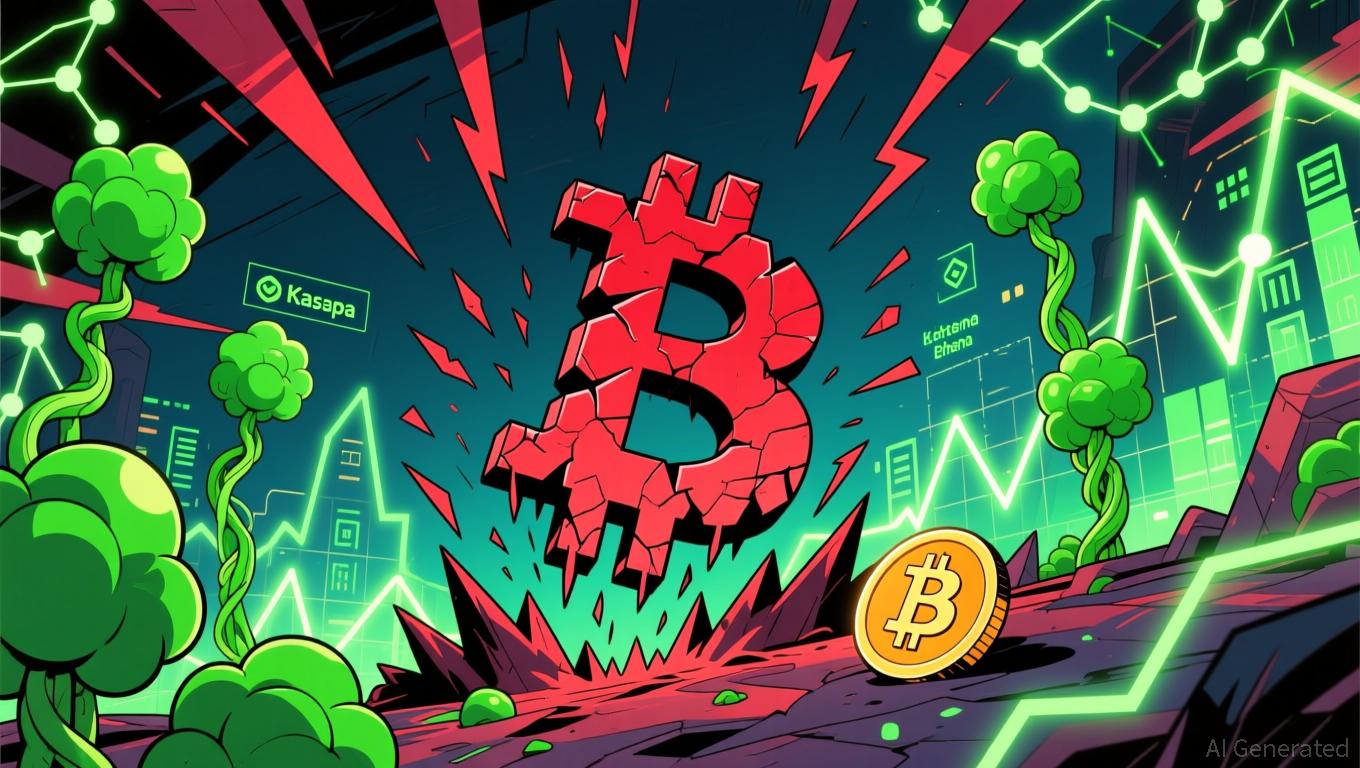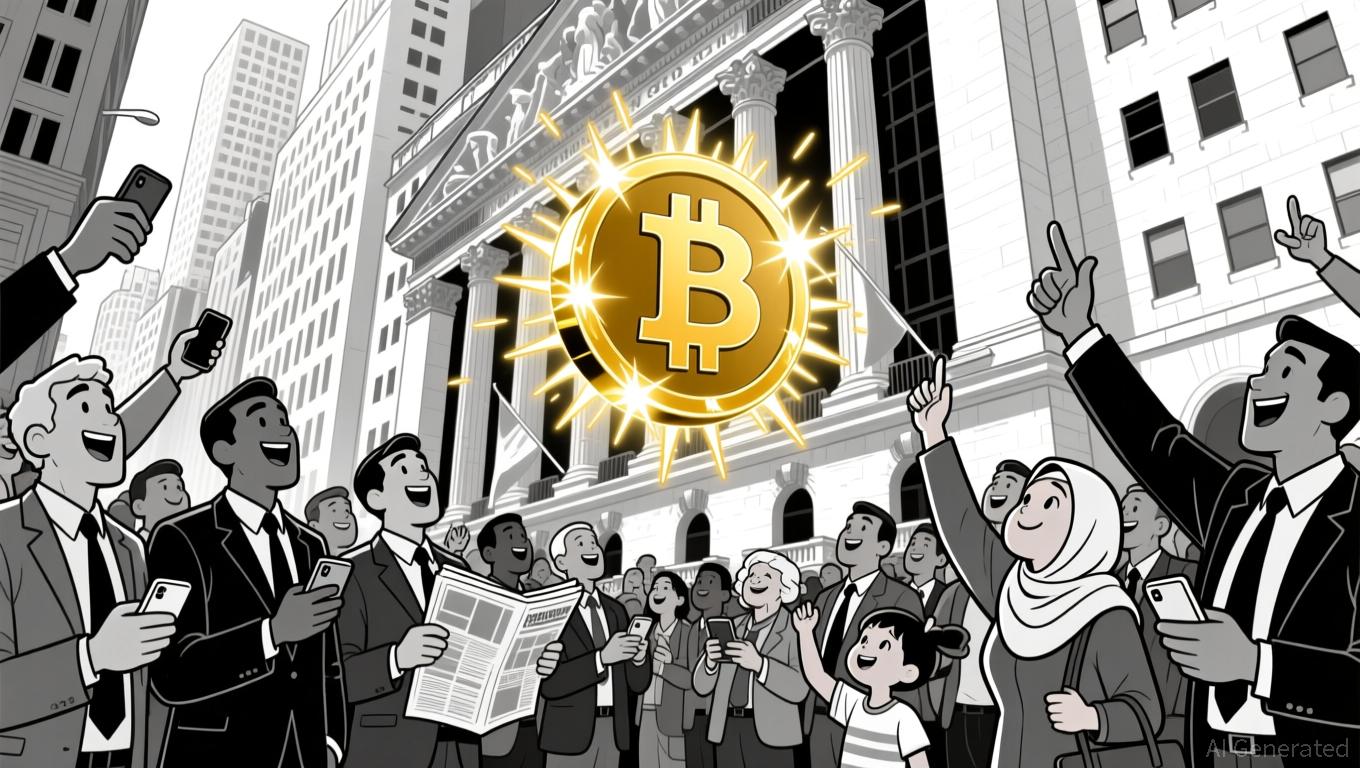The KITE Listing Boom: Analyzing Investor Attitudes and Trust from Institutions
- Kite Realty Group Trust (KRG) reported a $4.82M revenue shortfall but 2.1% same-property NOI growth in Q3 2025, driven by 79% grocery-anchored retail portfolio expansion. - Institutional ownership shows duality: Vanguard/JP Morgan hold $1.2B shares, while CEO John Kite sold 48% of holdings and Intech reduced stakes by 16.8%. - Analysts highlight KRG's 7.4% dividend growth and industrial real estate pivot amid AI/logistics trends, yet caution against retail REIT sector risks rated "F" for macroeconomic vu
KITE Ticker Activity: A 2025 Analysis of Kite Realty Group Trust
Recent heightened interest in the KITE ticker has ignited considerable discussion among market participants. While "KITE" can refer to several entities—including Kite Realty Group Trust (KRG), Kite AI, and Zerodha's trading platform—this review centers on KRG, a real estate investment trust (REIT) traded on the NYSE. By examining its valuation after listing, institutional investor behavior, and prevailing market sentiment, we gain insight into the evolving landscape for technology and real estate equities in 2025.
Valuation Trends Following Listing
In the third quarter of 2025, Kite Realty Group Trust demonstrated operational strength despite challenging economic conditions. The company faced a revenue miss of $4.82 million and posted a negative earnings per share of -$0.07. Nevertheless, it achieved a 2.1% annual increase in same-property net operating income and a 12.2% blended cash leasing spread. These results highlight KRG’s strategic emphasis on grocery-anchored retail, which now comprises 79% of its retail base rent. This focus has led to impressive leasing results, with new lease spreads averaging 56% and gross capital returns of 20% in this segment.

Despite these operational gains, KRG’s valuation faces ongoing challenges. Analysts have lowered their price targets, with Raymond James and Wells Fargo now projecting $26.00 and $23.00, respectively. The company’s negative price-to-earnings ratio and a 7.4% year-over-year dividend increase to $0.29 per share reflect the tension between its internal improvements and broader industry headwinds. The retail REIT sector as a whole has received a low rating, largely due to economic uncertainty, further complicating KRG’s outlook.
Institutional Investment Patterns
Institutional sentiment toward KRG is mixed. Major investors such as Vanguard Group, State Street Corp, and JPMorgan Chase collectively hold $1.2 billion in shares. However, recent trading reveals divergent approaches: Intech Investment Management LLC has reduced its holdings by 16.8%, and CEO John A. Kite has sold nearly half of his shares. In contrast, Centersquare Investment Management LLC and Geode Capital Management LLC have increased their stakes by 133.6% and 0.7%, respectively. This split suggests a cautious optimism among some investors, supported by KRG’s robust liquidity of $1.2 billion and a net debt-to-adjusted EBITDA ratio of 5.0x.
The recent approval of U.S. spot crypto ETFs—though not yet involving KRG—could boost institutional interest in digital assets, potentially benefiting REITs with innovative strategies. Additionally, KRG’s plans for dual-listing, similar to the SGX-Nasdaq model, may enhance liquidity and attract more investors from Asia.
Investor Sentiment and Long-Term Prospects
Market attitudes toward KRG are characterized by both hope and caution. The company’s pivot toward industrial real estate, fueled by demand from AI-driven logistics and e-commerce, positions it to benefit from long-term trends. However, risks remain, including the potential for anchor tenant bankruptcies, challenges in re-leasing space, and broader economic pressures on consumer spending. While some analysts praise KRG’s grocery-anchored portfolio and dividend growth, others warn of ongoing sector volatility.
The broader IPO market’s rebound in the third quarter of 2025—with a 19% rise in deal volume and an 89% increase in proceeds—has also influenced investor behavior. KRG’s updated guidance and operational improvements may appeal to value-focused investors, but its future performance will depend on macroeconomic stability and effective tenant management.
Conclusion: Charting the Future for KITE and KRG
The surge in KITE-related activity highlights the complex market environment of 2025. For Kite Realty Group Trust, success will depend on balancing immediate challenges with long-term strategic initiatives. While institutional investment shows a mix of caution and confidence, ongoing vigilance is necessary given sector-specific risks and economic fluctuations. As the retail REIT industry navigates uncertainty, KRG’s adaptability—through diversification into industrial real estate and maintaining dividend growth—will be crucial for its sustained success.
Disclaimer: The content of this article solely reflects the author's opinion and does not represent the platform in any capacity. This article is not intended to serve as a reference for making investment decisions.
You may also like
Ethereum Updates Today: Privacy First: Buterin Backs Messaging’s Fundamental Transformation
- Vitalik Buterin donates 128 ETH ($390K) to Session and SimpleX to advance metadata privacy and permissionless design. - Platforms use decentralized infrastructure and cryptographic IDs to protect communication metadata, resisting censorship and AI surveillance risks. - Donation counters regulatory threats like EU's Chat Control while promoting privacy-focused innovation in encrypted communication. - Experts emphasize permissionless account creation as critical for digital freedom, despite trade-offs like

Bitcoin News Update: Growing Optimism Faces ETF Withdrawals: The Delicate Balance of Crypto Stability
- Crypto markets show fragile stabilization as Fear & Greed Index rises to 20, but Bitcoin remains 30% below October peaks amid $3.5B ETF outflows. - Stablecoin market cap drops $4.6B and on-chain volumes fall below $25B/day, weakening Bitcoin's liquidity absorption capacity. - Select altcoins like Kaspa (22%) and Ethena (16%) gain traction while BlackRock's IBIT returns $3.2B profits, signaling mixed institutional confidence. - Technical indicators suggest tentative support at $100,937 for Bitcoin, but So

BCH Rises 0.09% as Momentum Fuels Outperformance
- BCH rose 0.09% in 24 hours but fell 4.22% in seven days, yet gained 22.72% annually. - It outperformed its Zacks Banks - Foreign sector with 0.66% weekly gains vs. -2.46% industry decline. - Earnings estimates rose twice in two months, boosting consensus from $2.54 to $2.56. - With a Zacks Rank #2 (Buy) and Momentum Score B, BCH shows strong momentum potential. - Annual 63.46% gains and positive revisions solidify its position as a top momentum stock.

DOGE drops 1.36% as Bitwise ETF debuts
- Bitwise launched the first Dogecoin ETF (BWOW) on NYSE, offering institutional-grade exposure to the memecoin. - DOGE fell 1.36% in 24 hours but rose 7.34% weekly, reflecting mixed short-term market sentiment. - The ETF aligns with growing institutional adoption and regulatory momentum for altcoins, despite a 52.35% annual decline. - Similar products like Bonk’s ETP and Ethereum upgrades highlight maturing crypto infrastructure and investor demand.
